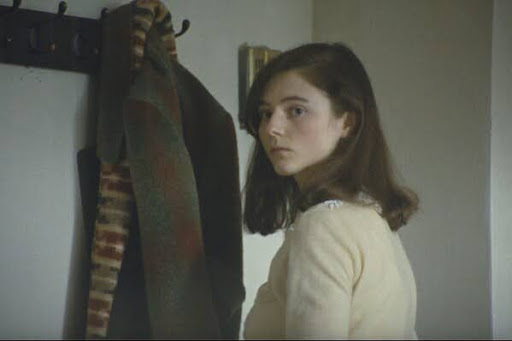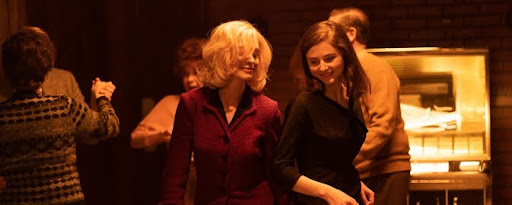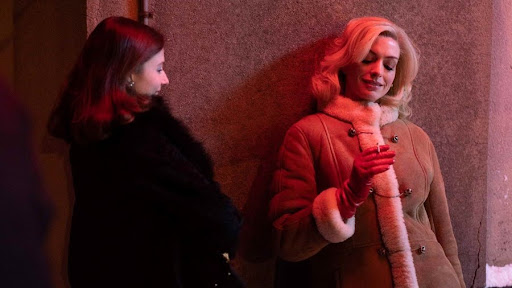(This review avoids major spoilers.)
In the very first moments of Eileen, the movie is already determined to repulse you. The camera takes the view, as it does throughout the movie, of a lovesick outsider, peeping through fogged windows and rusty jail bars. As a young couple live out their own (happier) movie, our titular character leers, imagining the life she was never given. This is the essence of Eileen.
As someone who has spent some time on the East Coast in the winter, the movie makes no exaggerations about the deadly inertia the whole season comprises, and it is this feeling – inescapable stillness – which haunts the movie as it unfolds, and haunts Eileen (played by a frigid Thomasin Mackenzie) as she tries to slip out from under its thumb. Eileen is a woman buried alive; taunted and disrespected at the prison where she works, abused at home by a bitter father, lonely and depressed. It is against this backdrop that we are introduced to the new prison psychologist, the suave and charismatic Rebecca Saint John (Anne Hathaway, by way of Audrey Hepburn), and like with the couple in the opening, it’s not long before Eileen develops an obsession.

Directed with a stalker’s eye by William Oldroyd and shot wide and still by Ari Wegner, this taut yet patient thriller keeps its cool, letting each character’s pathos simmer and bubble, only releasing the lid at the last possible moment and letting the hot oil splash. Hathaway especially shines, in the infinitely more difficult job of the two leads. To Eileen, Rebecca’s entrance is nothing less than messianic, some angel touching high-heel on earth, a sign to shake off the snow, to rail against winter’s malaise. Creating a character of this magnitude requires a strong vision and a stronger attention to detail. Every aspect of Rebecca Saint John – impeccable makeup work, imposing stature, colorful fashion design, and Hathaway’s magnetic performance – demands your attention and, vitally, your adoration.

Eileen’s soundtrack does just as much to fill out Oldroyd’s world. Stocked entirely with twitterpated oldies full of vinyl crackle (‘All These Things’ by Art Neville is especially potent during a heart-melting waltz sequence), the music so deftly captures the nostalgic-for-something-you-never-had feeling of a new love.
The first two-thirds of Eileen accomplishes so much while saying so little – we become attached to Rebecca, slipping into Eileen’s shoes as someone forever knocking on her window, not privy to her inner machinations. So of course we pay little mind to Rebecca’s disheveled demeanor during their two-person ‘Christmas party’. We have been lulled, like Eileen, into complacency. Then, only then, does Eileen play its final – and most gleefully disturbing – card.
4.3/5



